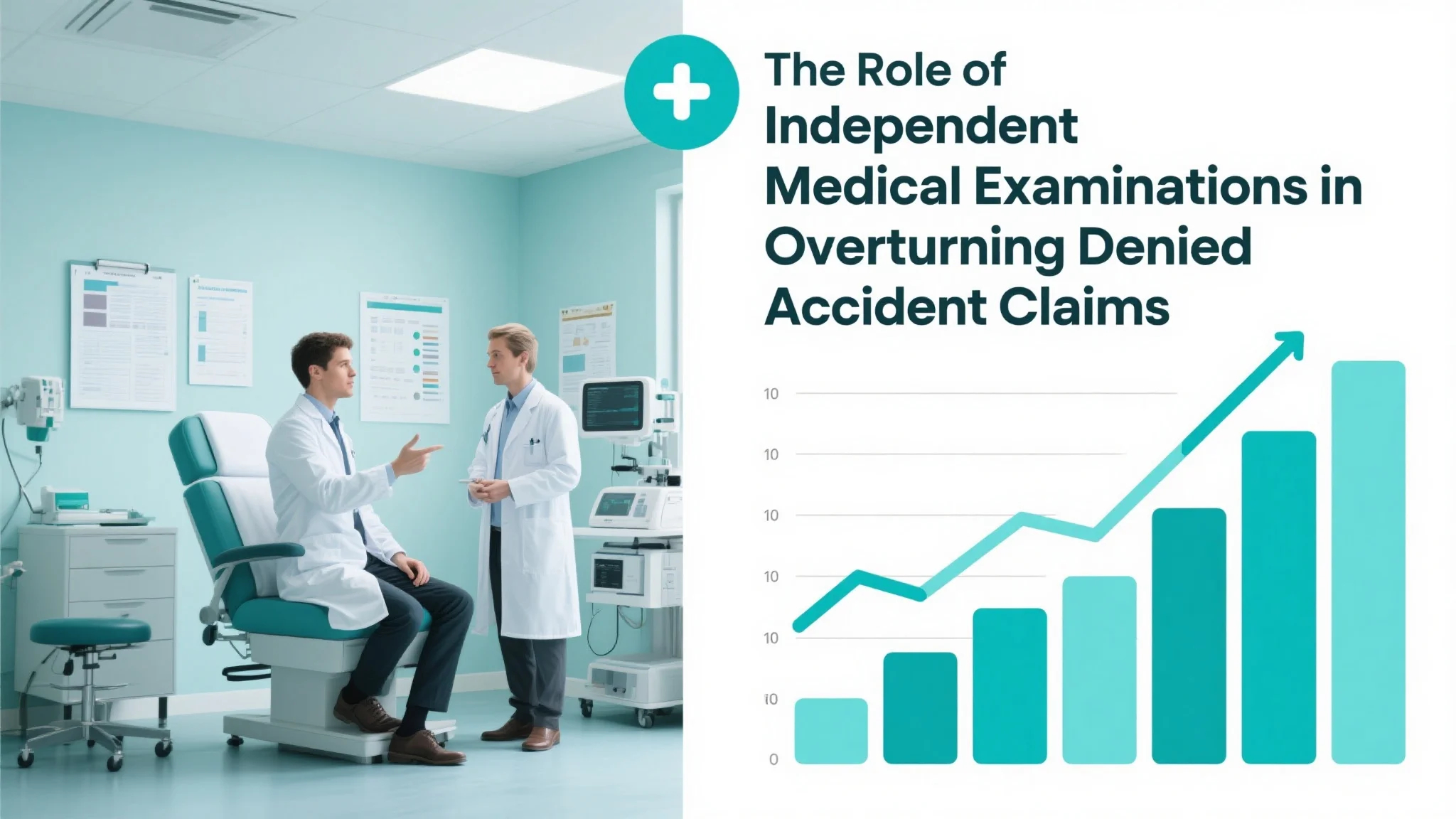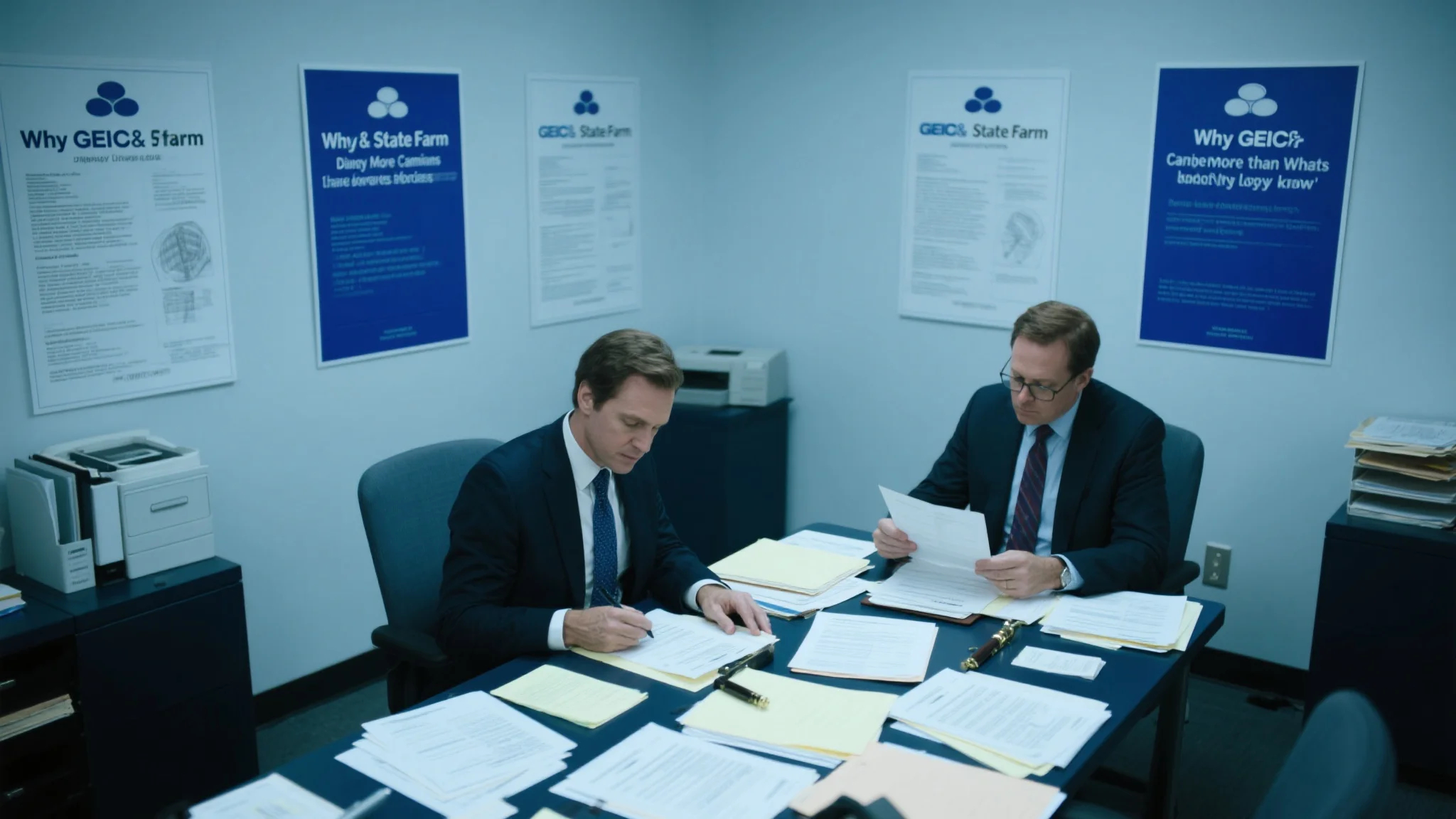Understanding the Critical Role of Independent Medical Examinations in Insurance Claims
When accident victims find themselves facing denied insurance claims, the path to justice often seems insurmountable. Insurance companies frequently rely on their own medical evaluations to justify claim denials, creating an inherently biased system that favors their financial interests over legitimate medical needs. However, one of the most powerful tools available to overturn these wrongful denials is the independent medical exam claim process. This comprehensive evaluation by neutral medical professionals can provide the objective evidence needed to challenge insurance company decisions and secure the compensation that accident victims rightfully deserve.
The significance of independent medical examinations extends far beyond simple medical documentation. These evaluations serve as a cornerstone of evidence that can fundamentally alter the trajectory of an insurance claim dispute. When insurance companies deny claims based on their own medical assessments, they often rely on examinations conducted by doctors who have financial relationships with the insurer, creating an obvious conflict of interest. Independent medical examinations eliminate this bias by involving qualified medical professionals who have no financial stake in the outcome of the claim. These neutral evaluators can provide honest, scientifically-based assessments of an accident victim’s injuries, treatment needs, and long-term prognosis.
The process of obtaining an independent medical examination requires careful planning and strategic implementation. Accident victims and their legal representatives must identify qualified medical professionals who specialize in the specific types of injuries sustained in the accident. This specialization is crucial because different types of accidents – whether automotive collisions, workplace incidents, or slip-and-fall accidents – can result in vastly different injury patterns that require specialized knowledge to properly evaluate. For instance, a neurologist might be essential for evaluating traumatic brain injuries, while an orthopedic surgeon would be more appropriate for assessing spinal injuries or fractures.
The timing of independent medical examinations can significantly impact their effectiveness in overturning denied claims. Ideally, these examinations should be conducted as soon as possible after the insurance company’s denial, while the medical evidence is still fresh and the victim’s condition can be accurately assessed. Delays in obtaining independent evaluations can allow insurance companies to argue that any worsening of the victim’s condition occurred after the accident, potentially undermining the credibility of the medical evidence. Additionally, prompt independent examinations can help establish a clear timeline of the victim’s medical condition, making it more difficult for insurance companies to dispute the connection between the accident and the resulting injuries.
The documentation produced by independent medical examinations must be comprehensive and detailed to effectively challenge insurance company denials. This documentation should include not only the examining physician’s findings but also their professional opinion regarding the cause of the injuries, the appropriateness of previous and ongoing treatment, and the victim’s future medical needs. The independent examiner should also address any specific concerns or questions raised by the insurance company in their denial letter, providing point-by-point responses that directly counter the insurer’s arguments. This level of detail and specificity is essential for creating a compelling case that can withstand scrutiny from insurance company lawyers and medical review panels.
Strategic Implementation of Medical Examinations in Claim Reversals
The strategic use of medical exam insurance claim processes requires a deep understanding of how insurance companies evaluate medical evidence and make claim decisions. Insurance companies typically rely on standardized protocols and guidelines when assessing claims, often using these rigid frameworks to justify denials even when individual circumstances warrant different treatment. Independent medical examinations can expose the limitations of these standardized approaches by providing individualized assessments that take into account the unique aspects of each victim’s case.
One of the most effective strategies for using independent medical examinations involves selecting examiners who have specific expertise in the medical conditions at issue in the claim. This expertise goes beyond general medical knowledge and extends to understanding the latest research, treatment protocols, and diagnostic techniques relevant to the victim’s injuries. For example, if an accident victim has sustained a traumatic brain injury, the independent examiner should be a neurologist or neurosurgeon who regularly treats such injuries and stays current with the latest developments in brain injury research. This level of specialization ensures that the independent examination will carry significant weight with insurance company medical reviewers and, if necessary, with judges and juries in litigation proceedings.
The preparation phase for independent medical examinations is crucial for maximizing their effectiveness in overturning denied claims. This preparation involves gathering comprehensive medical records, including all treatment notes, diagnostic imaging, laboratory results, and previous medical opinions related to the accident and resulting injuries. The independent examiner should have access to this complete medical history to provide a thorough and informed assessment. Additionally, the victim’s legal representative should prepare a detailed summary of the insurance company’s reasons for denial, highlighting specific medical or factual disputes that the independent examination should address.
The actual conduct of the independent medical examination must be thorough and professional to ensure that the resulting report will be credible and persuasive. The examining physician should perform a comprehensive physical examination, review all relevant medical records, and potentially order additional diagnostic tests if necessary to reach accurate conclusions. The examination should also include a detailed interview with the accident victim to understand their symptoms, functional limitations, and the impact of their injuries on their daily life. This comprehensive approach ensures that the independent medical examination addresses not only the medical aspects of the claim but also the practical consequences of the injuries for the victim’s quality of life and ability to work.
The documentation and reporting phase of the independent medical examination process requires careful attention to detail and strategic presentation of findings. The independent examiner’s report should be written in clear, accessible language that can be understood by insurance adjusters, lawyers, and potentially judges and juries. The report should include detailed explanations of the examiner’s findings, the medical basis for their conclusions, and specific responses to any arguments made by the insurance company in denying the claim. Additionally, the report should address the victim’s prognosis and future medical needs, providing a roadmap for ongoing treatment and rehabilitation that can be used to support requests for continued benefits or settlement negotiations.

Maximizing Success in Overturning Wrongfully Denied Claims
The ultimate goal of utilizing independent medical examinations is to successfully overturn denied claim decisions and secure appropriate compensation for accident victims. This process requires not only obtaining high-quality independent medical evaluations but also effectively presenting this evidence to insurance companies in a manner that compels them to reconsider their denial decisions. The presentation of independent medical examination results should be part of a comprehensive appeal strategy that addresses all aspects of the insurance company’s denial reasoning.
When presenting independent medical examination results to insurance companies, it is essential to frame the evidence in the context of the specific policy language and coverage provisions at issue in the claim. Insurance policies often contain complex medical terminology and coverage criteria that can be interpreted in different ways. The independent medical examination should directly address these policy provisions, demonstrating how the victim’s medical condition meets the criteria for coverage under the specific terms of their insurance policy. This approach helps insurance companies understand not only the medical validity of the claim but also their legal obligation to provide coverage under the policy terms.
The timing and method of presenting independent medical examination results can significantly impact their effectiveness in overturning denied claims. Rather than simply submitting the independent medical report as an isolated document, successful claim reversals often involve comprehensive presentations that include the independent medical examination as part of a broader package of evidence. This package might include additional medical records, expert opinions from treating physicians, vocational rehabilitation assessments, and detailed calculations of economic damages. By presenting the independent medical examination as part of this comprehensive evidence package, accident victims can create a compelling case that addresses all potential concerns or objections that the insurance company might raise.
The follow-up process after submitting independent medical examination results is crucial for maintaining momentum in the claim reversal process. Insurance companies may request additional information, seek clarification on specific points in the independent medical report, or propose alternative interpretations of the medical evidence. Responding promptly and thoroughly to these requests demonstrates the strength and credibility of the independent medical examination while maintaining pressure on the insurance company to make a fair claim decision. This follow-up process may also involve arranging for the independent examiner to participate in telephone conferences or depositions to further explain their findings and defend their conclusions.
In cases where insurance companies continue to deny claims despite compelling independent medical examination evidence, the documentation and credibility established through the independent examination process becomes invaluable for litigation purposes. Courts and juries often view independent medical examinations as more credible than examinations conducted by insurance company doctors, particularly when the independent examiner has impressive credentials and no financial relationship with either party. The detailed documentation and professional presentation of independent medical examination results can provide a strong foundation for expert testimony in trial proceedings, significantly improving the likelihood of a favorable verdict for the accident victim.
The long-term benefits of successfully utilizing independent medical examinations extend beyond the immediate claim reversal. When insurance companies are forced to reverse claim denials based on independent medical examination evidence, they often become more cautious about denying similar claims in the future. This creates a positive precedent that can benefit other accident victims who find themselves in similar situations. Additionally, the documentation and medical evidence developed through the independent examination process can be valuable for ongoing medical treatment and rehabilitation, helping ensure that accident victims receive appropriate care for their injuries regardless of the insurance claim outcome.
The cost-benefit analysis of obtaining independent medical examinations strongly favors their use in cases involving significant claim denials. While independent medical examinations do require upfront investment, the potential recovery from a successful claim reversal typically far exceeds these costs. Moreover, many independent medical examiners are willing to work on a contingency basis or accept deferred payment arrangements, making these evaluations accessible even for accident victims who are facing financial hardship due to their injuries and the insurance company’s wrongful denial of their claim. This accessibility ensures that all accident victims, regardless of their financial circumstances, can access the high-quality medical evidence needed to challenge unfair insurance company decisions and secure the compensation they deserve for their injuries and losses.



